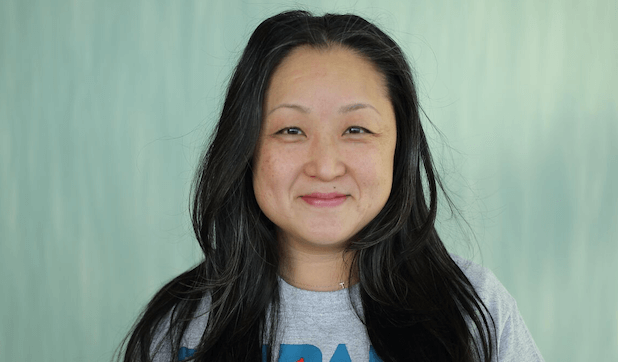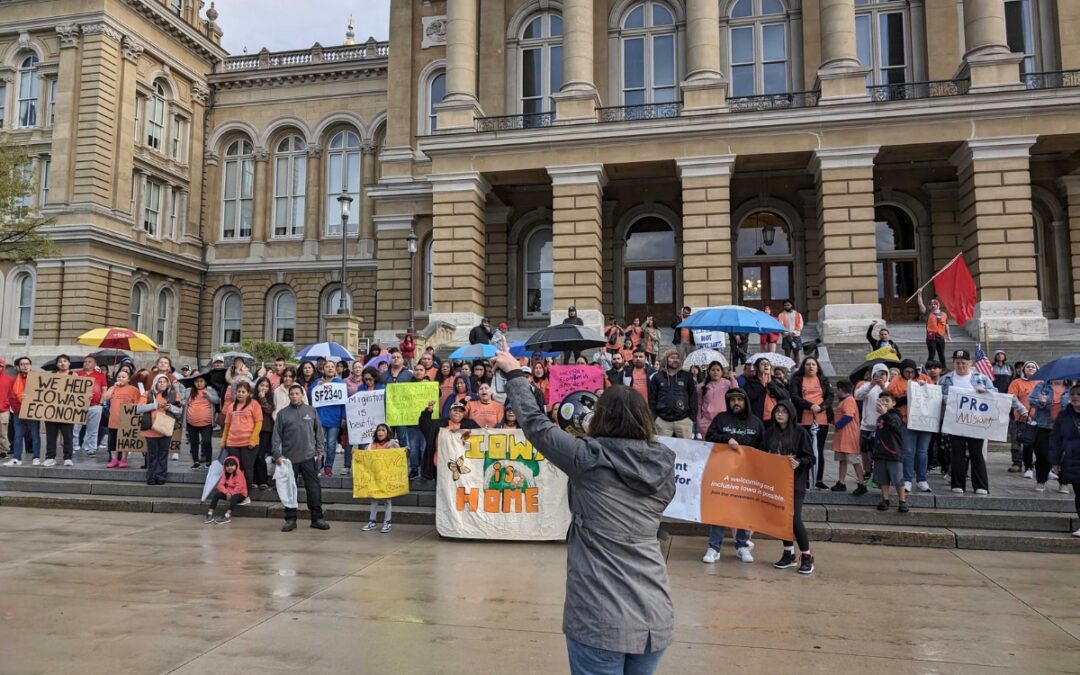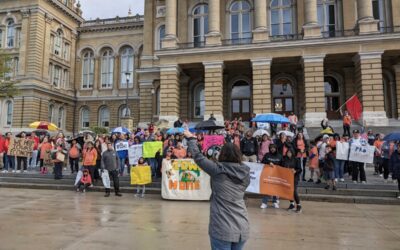
Henny Ohr has dedicated her life to empowering communities and showing what determination and caring for others can accomplish.
She is the director and co-founder of Ethnic Minorities of Burma Advocacy and Resource Center (EMBARC) in Des Moines. EMBARC is a nonprofit dedicated to helping Iowa’s refugee population through advocacy, education, and community development.
Her name is one I heard frequently from colleagues, friends, and individuals who work with her. We had exchanged a few emails but never met in person until this week.
We talked for nearly four hours—a new record for me—and while I tried to learn more about her, she kept turning the conversation toward the community.
[inline-ad id=”1″]
Still, I was able to learn a lot about this remarkable woman.
Henny is a 50-year-old immigrant from Seoul, South Korea. She came to the United States with her parents and settled in Boise, Idaho, when she was only a year old.
Like most immigrants, they were seeking a better life. Her family moved several times within the United States, from Chicago to California.
“By the time I was in second grade, I already went to five different schools,” Henny said.
Her parents did not speak English and were always busy working multiple labor jobs. Because of that, Henny had to grow up fast. She took on adult tasks such as paying bills, grocery shopping, interpreting and translating for her parents.
“Since my parents were always working, my siblings and I raised ourselves,” she recalls.
[inline-ad id=”2″]
Henny told me she was called a “chink” on a daily basis as the only Asian American while attending school in a Chicago suburb. She just wanted to belong.
Her original plan was to become a doctor. Then at 18, she decided to drop out of school and move to New York by herself. In the city, she worked as a waitress for about seven years and saved money to travel.
Henny later decided to go back to school and enrolled at Hunter College, a City University of New York institution. While there, she studied psychology, women’s studies, and Asian American studies to get in touch with her own roots and identity.
She graduated in 2000 and five years later she earned her law degree from the City University of New York School of Law.
Law school is where she met her husband, Christopher Rottler, who is from Iowa. They moved to his home state in 2007 when their oldest son was eight weeks old.
[inline-ad id=”3″]
Henny was hired as program and policy coordinator for the Iowa Department of Human Right’s Commission on Asian and Pacific Islander Affairs in 2009. She was promoted to executive officer in 2010 and was also in charge of the Iowa Commission on the Status of Women when the department reorganized.
Her position with the state allowed her to work with refugee communities from Burma and identify their needs, struggles, and the lack of available assistance.
That inspired her to leave her job and launch EMBARC in 2012 alongside six refugees from Burma.
EMBARC opened its office doors in February 2014 with an expanded focus that included advocates from other immigrant communities and a board that primarily consists of refugees.
At its very core, EMBARC is a grassroots, community-based, non-profit founded by refugees, for refugees. It continues to expand as needs arise and in 2015 it launched its Rebuild, Integrate, Serve, Empower (RISE) AmeriCorps Program.
“Our goal is to create leaders and to build community organizations,” Henny said.
EMBARC has become the authority in Iowa when it comes to many refugee groups, and Henny wants others to see the value they bring.
“Our refugee and immigrant communities have strengths and assets, and promise and potential,” she said. “We have to stop thinking in terms of charity and think about things in terms of opportunities and empowerment. We talk about equity and meeting people where they are at, but are we truly providing the resources and the support to meet them where they are at?”
[inline-ad id=”4″]
Throughout our conversation, Henny referred to her childhood and how she and her family were made to feel like they did not belong, and felt they did not have a voice. She grew up hearing others tell their story.
Henny wants to change that narrative and although changing that narrative will take generations, she has definitely prepared the field and sown the seeds for these communities to have a better life.
Mateo Sol, an Australian psychospiritual teacher and author, once said, “Often our desire to heal others is a disguised cry for help of our own healing.”
By learning about Henny, I see how she’s helping heal many and healing herself.
By Claudia Thrane
07/23/21
[inline-ad id=”0″]

VIDEO: Hampton businesses targeted with anti-immigrant flyers
Earlier this month, the Latino community in Hampton, Iowa was rocked by what locals are calling a hate crime: employees of Latino-owned businesses...

Immigrant Iowans, major ag workforce, wonder if they should stay here
by Mónica Cordero, Investigate Midwest/Report for America Leer en español Having spent more than half her life in Waterloo, Iowa, she has built a...

Opinion: In the wake of Tyson, let’s rethink Iowa’s immigration stance
In Iowa, we often pride ourselves on our resilience and self-reliance. However, the truth is our state's prosperity heavily depends on, both...

The fight against ‘clearly unconstitutional’ Iowa immigration law
Recent Iowa immigrants and allies are still fighting against an Iowa immigration law they say unfairly discriminates against and targets them....

Advocates file suit to stop Iowa’s ‘unconstitutional’ immigration law
Immigration advocates filed a federal lawsuit Thursday to stop Iowa’s new immigration law—SF 2340—from taking effect arguing that the legislation...

Iowa Latinos rally to oppose new ‘unjust’ law targeting their community
Iowa's new anti-immigrant law is based on a Texas law that some argue is unconstitutional Jose Alvarado wasn’t shocked when Republicans in the Iowa...




